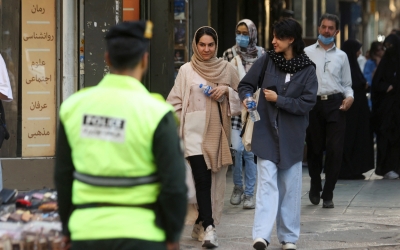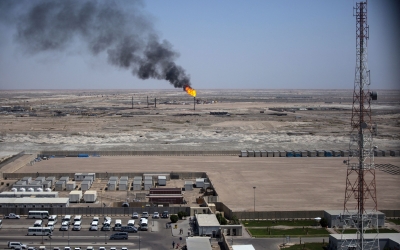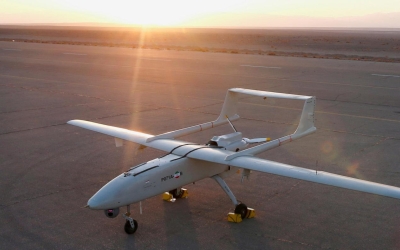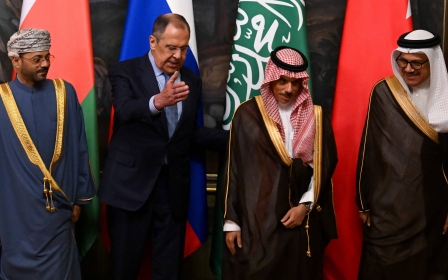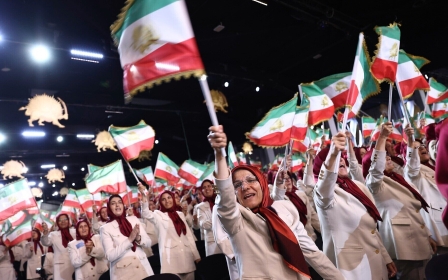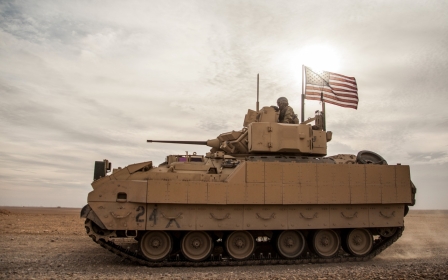Iranian press review: Vendors arrested for selling 'unconventional clothing'
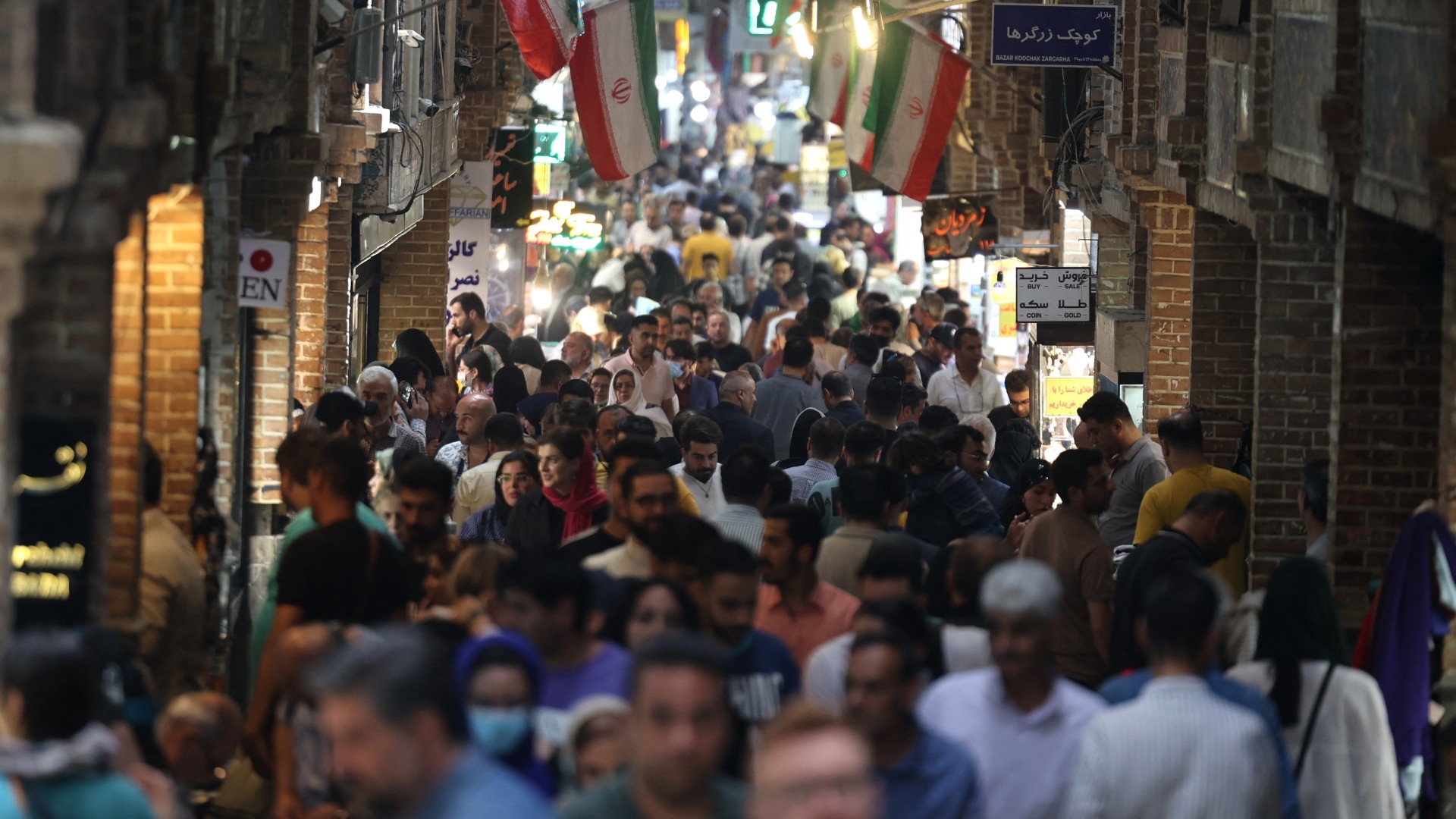
Crackdown on 'unconventional clothing'
Iran's cyber police, commonly known by its Farsi acronym FATA, have arrested 12 individuals involved in producing and selling what authorities have deemed "unconventional clothing," according to a report by Iran Labour Agency.
Davoud Moazami Goudarzi, head of FATA, said on Monday that the detainees used 15 separate Instagram accounts with over 800,000 followers to market their garments.
Since widespread anti-government protests broke out in September after the death of 22-year-old Mahsa Amini in police custody, authorities have blocked access to Instagram.
It had been one of the most popular social media apps, after Twitter, Telegram, Facebook and other platforms were blocked in previous years. Some users still access the apps using VPNs.
New MEE newsletter: Jerusalem Dispatch
Sign up to get the latest insights and analysis on Israel-Palestine, alongside Turkey Unpacked and other MEE newsletters
Goudarzi did not disclose the criteria used to determine what constituted "unconventional clothing".
However, he was quoted as saying: "Generally, the designs featured on these clothing items were seen as promoting the consumption of drugs and alcoholic beverages, and encouraging satanic rituals."
He added that police closed down four units near Tehran's Grand Bazaar, where the clothing was produced, and seized thousands of outfits as part of its efforts to protect Islamic values.
The arrest of the clothing manufacturers coincided with the return of the "morality police" to Iran's streets earlier this month, as part of efforts to enforce strict dress codes on women.
The so-called morality police - officially known as Gasht-e Ershad or guidance patrol - suspended street patrols last year after they came under scrutiny, following the death of Amini.
The 22-year-old was arrested by its officers for allegedly wearing her headscarf "improperly". Authorities said she died from pre-existing health issues - a claim her family disputed.
Oil and gas modernisation 'needs $250bn'
Iran needs $250bn in investment to modernise antiquated oil and gas infrastructure in order to increase production capacity, according to an energy expert.
On Tuesday, Morteza Behrouzifar told Ensaf News that gas shortages during winter and electricity outages experienced in summer were the direct consequences of relying on outdated technology for energy production in the country.
He added that international sanctions were the main obstacle to attracting substantial investments to rejuvenate the oil and gas sectors.
"With internal sources unable to fund such investments, even if available, we lack the necessary knowledge and technology to expand our oil and gas fields," Behrouzifar said.
He suggested that a nuclear agreement with the United States would not be sufficient in removing the challenges associated with overhauling outdated infrastructure.
"If today the politicians decide to reestablish an agreement with the US, it would not resolve our problems because no sane company would be willing to invest in an environment that could be targeted with new sanctions at any moment," he said.
Middle East Eye first reported last month that Iran and the US were nearing a temporary deal to swap some sanctions relief for reducing Iranian uranium enrichment activities.
However those efforts later faced a setback after factions in the Iranian ruling establishment disagreed over US demands on prisoner releases, sources close to the talks told MEE.
Housing crisis compared to building drones
An Iranian legislator has compared the complexity involved in manufacturing missiles to that of constructing homes, urging the government to solve an ongoing national housing crisis.
"Is it more difficult to build missiles or to erect buildings?” parliamentarian Mohammad Reza Mirtajuddin said last week, as quoted by Taadol newspaper.
“The construction of houses is easier than manufacturing drones. So we have the knowledge, yet much remains to be accomplished," he added, referring to Iran's fast-developing missile and drone programmes.
Last month, Iran unveiled its first domestically made hypersonic ballistic missile, which officials claimed could reach a top speed of 15,000km per hour.
In recent years, the country's missile arsenal has become one of the largest and most diverse in the Middle East.
But over a similar period, Iranians have faced difficulties finding affordable accommodation due to skyrocketing inflation and rising poverty.
A report published by Iran’s parliament in June revealed a 950 percent increase in housing prices over the past five years.
Mirtajuddin highlighted the living conditions of 12 million Iranians living in poorer suburbs of cities, and a further 12 million living in neighbourhoods undergoing urban decay.
Based on those figures, he concluded that the government needed to provide housing for 24 million Iranians.
Middle East Eye delivers independent and unrivalled coverage and analysis of the Middle East, North Africa and beyond. To learn more about republishing this content and the associated fees, please fill out this form. More about MEE can be found here.


